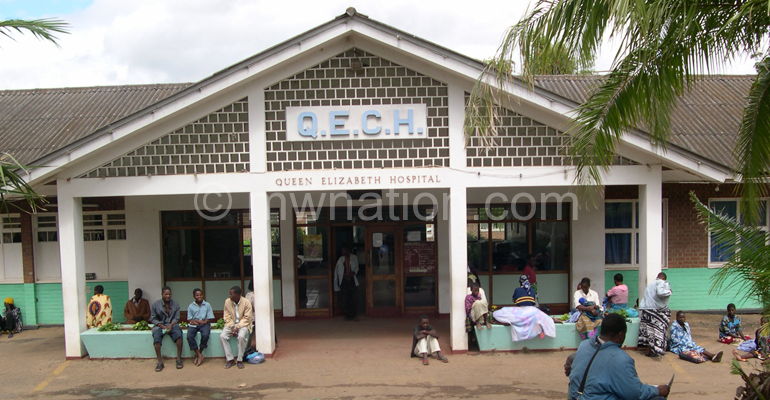Inequalities rife in health care
Following the global adoption of the Sustainable Development Goals (SDGs) in 2015, Malawi outlined its vision of achieving the target of universal health coverage (UHC).
The vision envisaged all people accessing the health care they need without facing financial hardship.

The commitment in the SDGs was also repeated in the Health Sector Strategic Plan II (2017-22) which emphasises addressing social risk factors and ensuring universal coverage of basic health care.
But six years since the adoption of the United Nations goals, and two years to the expiry of the strategic plan, the situation is not as expected.
Catherine Kamwendo, 27, comes from Phunduma Village, Traditional Authority Mkhumba in Phalombe.
The young mother has three children aged 17, 10 and a year-and nine-months-old.
In March this year, Kamwendo noticed that her youngest child’s left eye was getting swollen she comes to QECH right away.
Currently, the child is at the hospital where a recent test conducted at Mwaiwathu Private Hospital, where she was referred to from QECH, last week showed that the tumour had spread to the brain.
“The doctors said this means we will have to stay in the hospital for a longer period. The swollen eye has to shrink first and she will go for another test to ascertain the next step,” Kamwendo said.
Her story is almost similar to that of an 80-year-old woman (name withheld) from Traditional Authority Ndamera in Nsanje District.
The woman has been experiencing cervical cancer symptoms such as irregular vaginal bleeding and discomfort since 2017.
Numerous visits to health centres within her reach since that time yielded nothing. She was only getting pain killers or antibiotics.
With no money to travel to QECH for screening, she would just return home and take the medication received.
Last week, she was among 31 women who were screened at Ndamera Health Centre during a campaign conducted by QECH’s Chatinkha Maternity Care Support Group (Chamaca).
She was diagnosed with cervical cancer and her specimen, to be analysed in Blantyre for further attention, was taken.
Chamaca chairperson Professor Frank Taulo, a renowned gynaecologist and obstetrician, feels the situation would have been different had the woman accessed screening back then.
“If this woman had the opportunity to get screened all that time she was turning up at health facilities, I don’t think she would have developed cancer. But now she has got cancer despite that she had been presenting herself to the hospital,” he says.
Taulo paints a picture of what it takes for women in rural communities to access cervical cancer health care.
“Now with the specimen that we have taken, we don’t have the facilities to process it in public health facilities. That means we will have to take it to a private facility.
“That sorted, she has to start treatment which comprises chemotherapy and surgery. That will require taking her from Nsanje to Blantyre where these services are available. It is not easy,” he said.





